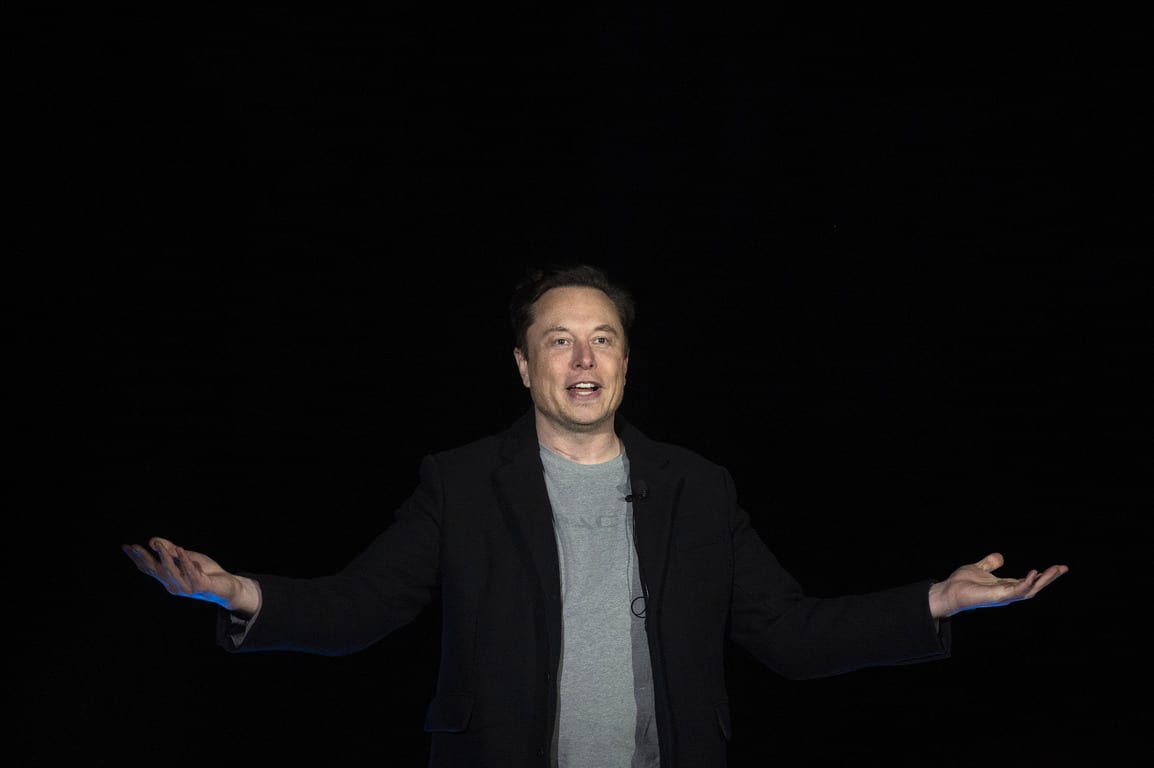San Francisco, United States – Elon Musk was at the news epicenter Thursday, from stripping Pope Francis of Twitter verification to Tesla’s drag on stocks and the explosion of the world’s largest rocket.
Three utterly disparate stories dominated global news in a way that underlined the extraordinary influence of the one person who connects them all –- Musk.
“Elon Musk has outsized capability to sway the news cycle,” University of Florida assistant media professor Andrew Selepak told AFP.
Musk has quickly gone from being an innovator few knew of to a “tech billionaire playboy who has almost taken the place of Donald Trump as a Twitter troll,” Selepak said.
Twitter began the mass removal of blue ticks on Thursday, with the symbol previously signifying a verified account vanishing from users including the Pope, Donald Trump and Justin Bieber.
Twitter owner Musk, who has seen his $44 billion investment in the site shrivel, had pledged to get rid of what he described as a “lords & peasants system.”
The platform had been providing free blue checkmarks to the accounts of high-profile users to show they were who they claimed to be.
Musk’s switch does away with verifying who is behind accounts, with the checks now simply indicating who has paid a monthly subscription fee.
Techsponential analyst Avi Greengart described Musk’s blue checkmarks as “receipts” rather than verification.
The removals coincided with the disappearance of “state-affiliated” and “government-funded” labels from media accounts, according to a review by AFP as of 0600 GMT Friday.
Many major outlets from Western nations, Russia, China and other countries that previously had either of those tags no longer displayed them, including NPR from the United States, China’s official Xinhua agency and RT from Russia.
The removal followed spats in recent weeks between Twitter and news organizations that had objected to those labels, saying they cast doubt on their editorial independence.
‘Unscheduled disassembly’
Musk was looking to the sky as well, where the colossal Starship built by SpaceX exploded minutes after launch in Texas.
Musk congratulated his SpaceX team on an “exciting” test of the next-generation spacecraft designed to send astronauts to the Moon, Mars and beyond.
Despite the failure to complete the flight test and reach orbit, SpaceX and Musk, the founder and CEO of the private space company, declared it a success.
Starship malfunctioned and began spinning out of control, exploding four minutes after lift-off in what SpaceX euphemistically called a “rapid unscheduled disassembly.”
Meanwhile, Wall Street stocks ended lower on Thursday following lackluster corporate results from electric vehicle maker Tesla and several regional banks.
Shares of Tesla slumped after reporting a drop in quarterly earnings and hinting the Musk-led company could face further profit pressures from more price cuts on its vehicles.
As Twitter, Tesla and SpaceX deal with turbulence, Musk is a common denominator, noted independent tech analyst Rob Enderle.
“The CEO is supposed to be the mature member of the staff who keeps the train on the tracks,” Enderle told AFP.
“Musk is the opposite of that, he often lacks maturity and knocks the train off the tracks.”
After revolutionizing the auto industry, sending his own rocket to space and building a fortune, the eccentric billionaire bought Twitter late last year and fired its top executives.
He promotes himself as a champion of free speech but has been accused of being autocratic and bullying, as well as of endorsing misinformation on the platform.
The 51-year-old is among the richest people in the world.
To Mars… and beyond?
Born in Pretoria, on June 28, 1971, the son of an engineer father and a Canadian-born model mother, Musk left South Africa in his late teens to attend Queen’s University in Canada.
He transferred to the University of Pennsylvania after two years and earned bachelor’s degrees in physics and business.
Musk abandoned plans to study at Stanford University in California.
Instead, he started Zip2, a company that made online publishing software for the media industry.
He banked his first millions when he sold Zip2 to US computer maker Compaq for more than $300 million in 1999.
Musk’s next company, X.com, eventually merged with PayPal, the online payments firm bought by internet auction giant eBay for $1.5 billion in 2002.
After leaving PayPal, Musk embarked on a series of ever more ambitious ventures.
He founded SpaceX in 2002 and became chairman of Tesla in 2004.
Musk enterprises include tunnel-drilling The Boring Company and Neuralink, which is focused on linking human brains and computers.
He has said he wants to make humans an “interplanetary species” by establishing a colony of people living on Mars.








